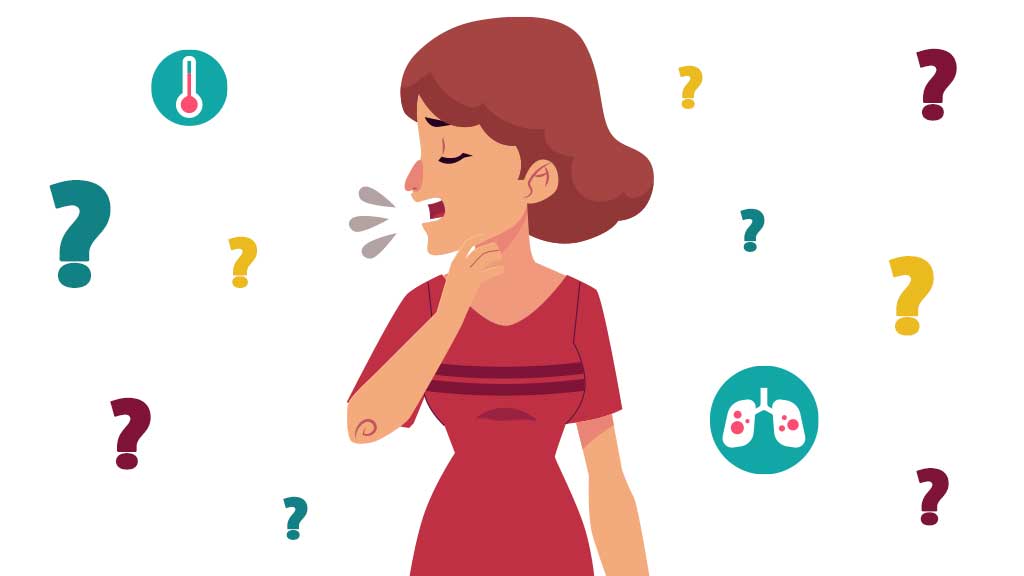
How to distinguish between COVID, Flu, and RSV
COVID, the flu, and RVS are all extremely contagious respiratory tract infections that can affect your sinuses, lungs, airways, or throat. Although these types of infections can occur at any time during the year, they are significantly more common in the winter months. To distinguish between COVID, flu, and RSV, it can be helpful to be aware of the most common symptoms associated with each illness so that you seek proper treatment and avoid infecting others.
What causes COVID and what are its symptoms?
Coronaviruses are a group of viruses that can cause respiratory sickness in humans. The term “corona” refers to the surface of the virus, which is coated in spikes that resemble crowns. COVID-19 is specifically caused by the virus known as SARS-CoV-2. While the best preventative measures include getting vaccinated, social distancing, and washing your hands, you might still get sick. Here are the symptoms to look out for if you think you may have COVID:
- Fatigue
- Headaches
- Cough
- Muscle soreness
- Sore throat
- Fevers
- Runny nose
- Vomiting/Diarrhea
- Shortness of breath
- Chills
- Loss of taste and smell
What causes the flu and what are its symptoms?
The influenza virus, which causes the flu, shares very similar characteristics to COVID. It tends to be more contagious in the winter as people are more likely to stay indoors together. It is recommended to get vaccinated each year for the flu as there are several different strains of this virus. While there are many overlapping symptoms between the flu and COVID, the two most disguisable one seen in patients are the flu typically has a sudden onset versus a gradual one. Also, a loss of smell and/or taste is not a reported symptom of the flu. Here are the symptoms to look out for if you think you may have the flu:
- Muscle soreness
- Headaches
- Chills
- Fevers
- Cough
- Vomiting/Diarrhea (more common in children)
- Sore throat
- Fatigue
- Runny nose
What causes RSV and what are its symptoms?
RSV, or the respiratory syncytial virus, is a very contagious virus that infects all age groups; however, the severity of the illness can be worse for infants or the elderly. The symptoms of RSV typically are milder and resemble that of a common cold. Here are the symptoms to look out for if you think you may have RSV:
- Muscle and body aches
- Cough
- Fatigue
- Fevers
- Shortness of breath (more common in infants)
- Runny nose
- Sneezing
- Sore throat
- Headaches
It is important to consider that viruses differ from other bacterial infections and thus cannot be treated the same way with antibiotics. If you think you have been infected with one of these respiratory tract infections, contact your doctor in Barcelona as soon as possible to discuss treatment options. You can always rely on Medvisit; we have the most reliable doctors in Barcelona who can help you with the most advanced medications and guidance. Appointments can easily be booked with knowledgeable and experienced English-speaking doctors. And, as a reminder, remember to practice correct hygiene procedures and get vaccinated to reduce the risk of contracting one of these illnesses!

